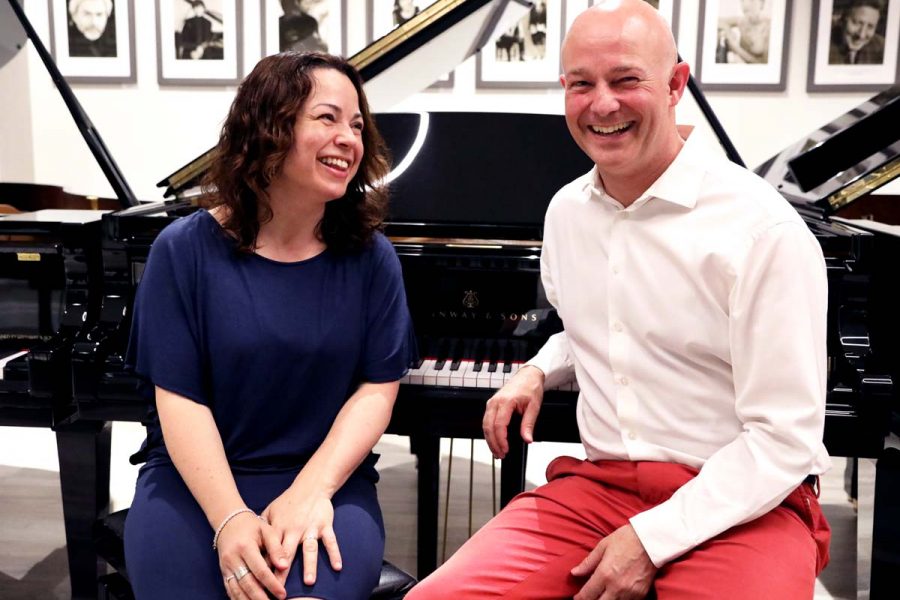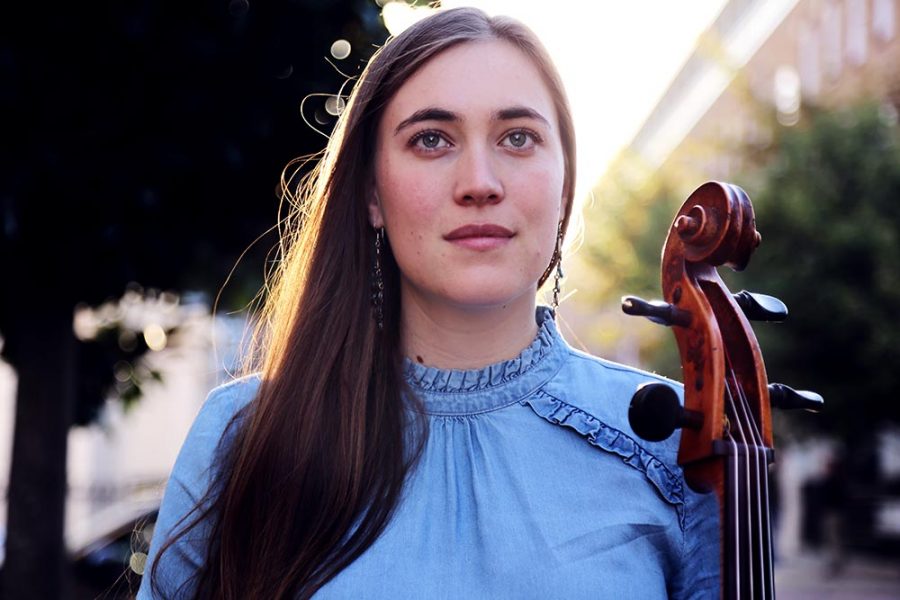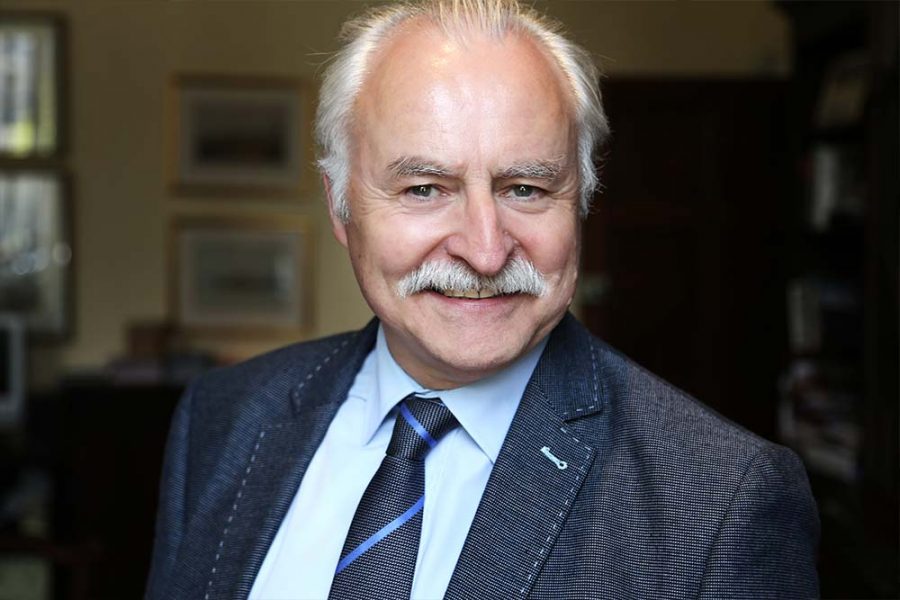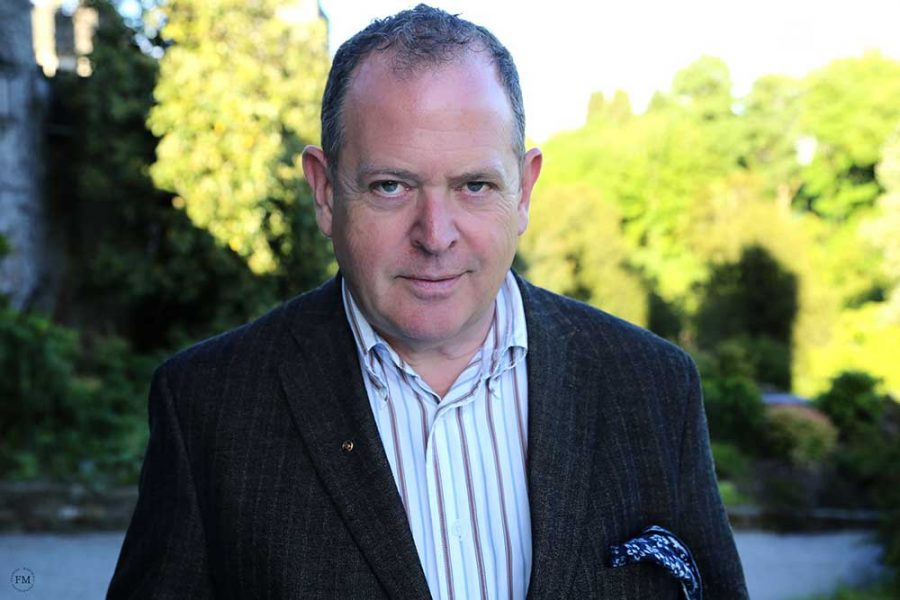The Evolution of Legacy with David Mareček and Robert Hanč

October 2019
Interview and photos by
Frances Marshall
Share this article
General Manager Robert Hanč and CEO David Mareček have been praised for bringing the Czech Philharmonic back to its rightful position as one of the world’s leading orchestras.
Today, the Czech Philharmonic, along with its iconic legacy, is thrilling international audiences with some of the industry’s greatest stars. Hanč and Mareček sat down with Final Note Magazine to talk about how they managed the evolution of their great national treasure through partnership and loyalty.
David stops us from being boring, I keep us out of trouble."

What brought you to start working together?
D: We were both working for the Brno Philharmonic and suddenly Robert was promoted to General Manager and I became the CEO. The first couple of months were a disaster (laughs) and I realised that Robert was about to leave because I was failing! So we decided to go for a three hour walk. During this life-changing conversation we decided that we definitely needed each other and we would collaborate together for a trial period. It worked really well and we slowly built our joint vision for the orchestra.
What is it about the two of you that makes the perfect partnership?
R: David is a diplomat, I’ve no idea how he’s managed to do this, but everybody likes him. No matter how hard or unpleasant a situation is, he always makes everyone feel OK. He’s a wonderful public speaker and he never sidetracks. He knows what he wants to say and says it so clearly that he makes everyone excited about our vision.
D: Robert could easily be a lawyer, he is so exact and goes so deeply into things in a way that no one else does. We’re both quite idealistic and share the same dreams and enthusiasm, which unites us. I like to dream big and Robert makes it happen, he can find a problem very fast that I may have overlooked. He also has the strength to confront these issues in meetings so we can overcome these obstacles and make wonderful things happen.
R: David stops us from being boring, I keep us out of trouble.
Why did you both decide to move to the Czech Philharmonic?
D: I was approached by the Ministry of Culture and I initially turned down the job. But then they came back to me with the idea of hiring the great Jiří Bělohlávek as the principal conductor. Myself and Robert both respected him so much that we decided to take the job. It was afterwards that we realised they hadn’t secured him for the position (laughs). So our first task was to convince him to come on board.
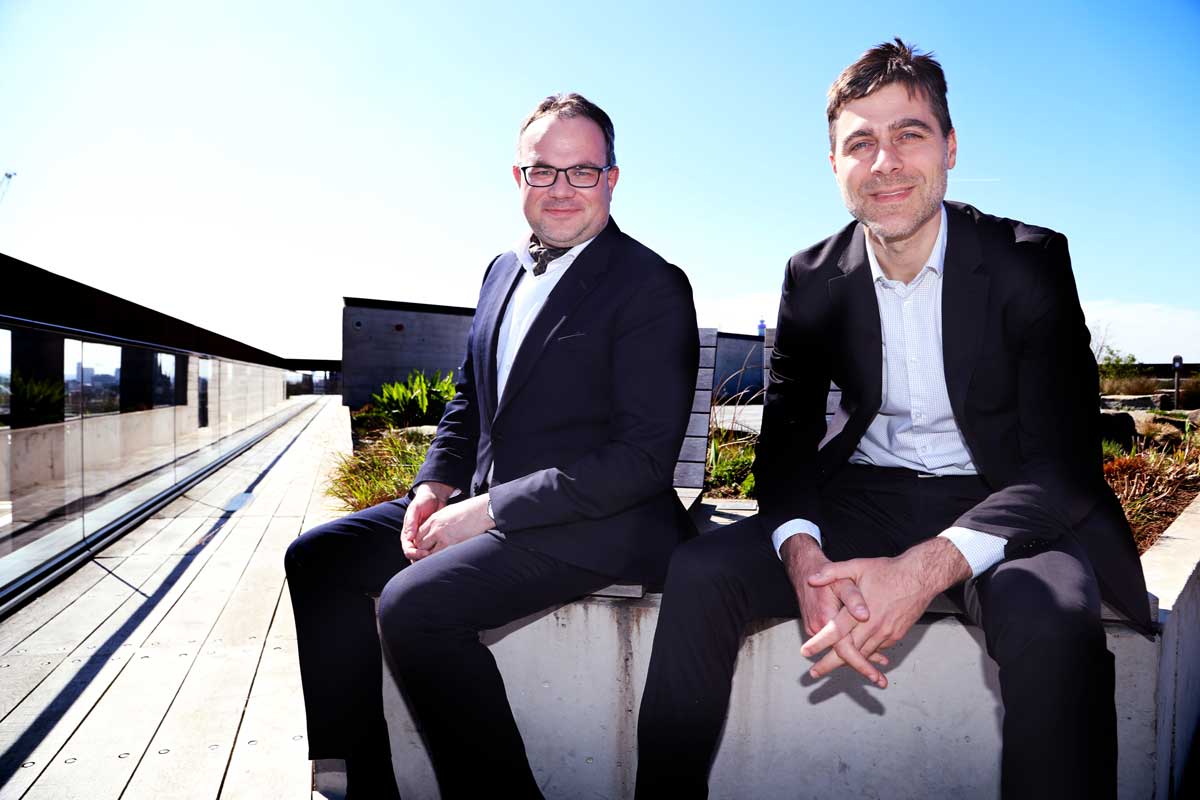


What was your first obstacle to overcome in the position?
R: There were many. In the past the orchestra was an internationally renowned ensemble, but from the 90’s onwards they hit a crisis. The orchestral players themselves were very unhappy and were being treated badly. There was a ridiculously high turnover in management, who all made the same mistakes of overpromising higher wages and unrealistic concert engagements. In the Czech Republic, there’s massive rivalry between Brno and Prague, so that definitely didn’t work in our favour. Our biggest challenge was to get the orchestra to trust us.
No easy task, how did you manage that?
D: Things changed when we went on our first tour with the orchestra to Japan in 2011. The Tsunami and earthquake hit while we were there and we had to cancel five concerts. Japanese law is quite different to ours and they didn’t accept it, but the musicians were grateful that we put them first. We ended up organising the army to send airplanes to get the musicians home safe and this proved to them that we could do the job. From then on everything changed.
When you both settled into the job, what was the main focus?
D: Many people throw around the word ‘revolution’ all too lightly, they believe that in order to fix something they need to throw everything out and start again. That way of thinking can be the worst solution. We saw our jobs as spearheading an evolution of the Czech Philharmonic and in order to do that we had to completely respect the legacy and foundation on which the orchestra was built.
R: One of the strongest aspects of the Czech Republic as a nation, is our music education system. Almost every place will have a music school, even in tiny villages, and in the larger towns there could be over twenty for the locals to choose from. So a lot of the children who attend primary and secondary schools also attend state supported music classes in the afternoon. Which means that the percentage of musicians emerging is very high, and as a result we have a large well of talent to choose from. However, because working conditions of the Czech Philharmonic were so bad, we were losing our greatest players to international orchestras.
We saw our jobs as spearheading an evolution of the Czech Philharmonic and in order to do that we had to completely respect the legacy and foundation on which the orchestra was built."

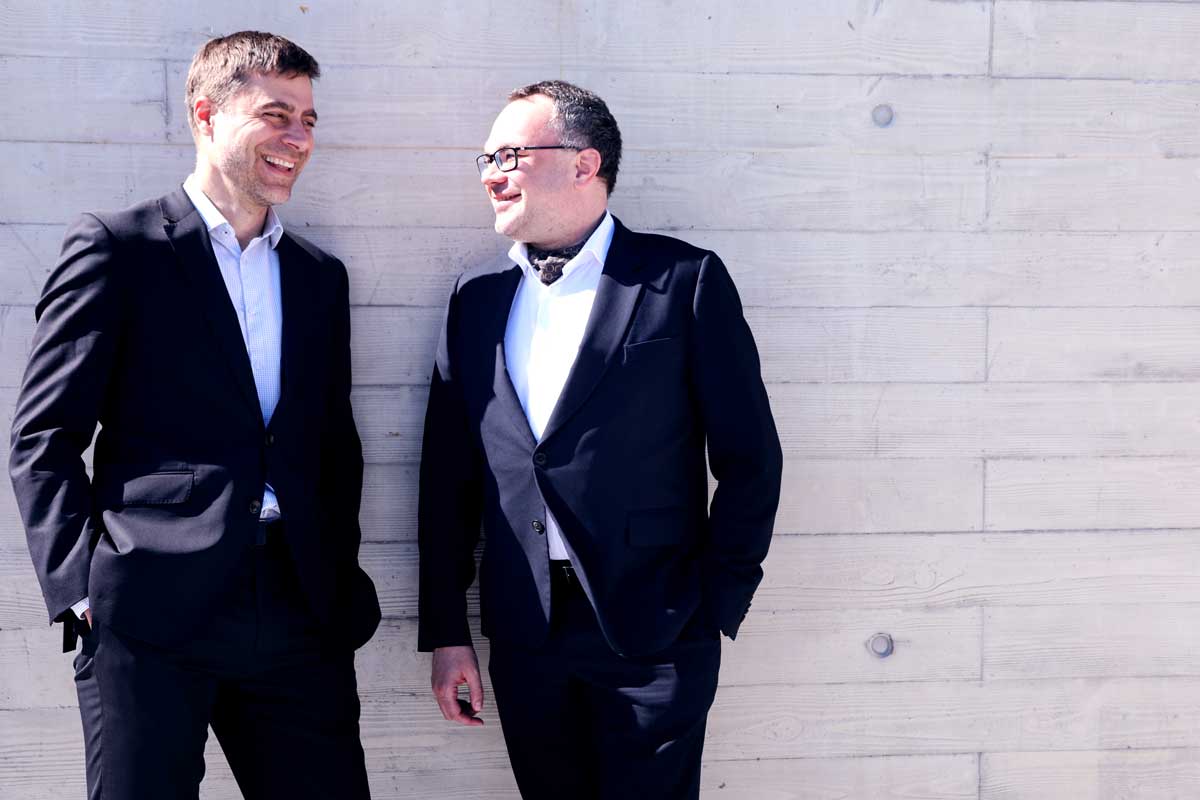

We went from selling two nights at 60% capacity to three nights at 100%. It’s been a dream come true."

What were the secrets to improving the working conditions of the orchestra?
D: Many musicians left the orchestra and the younger players were applying for international positions. The CEOs kept changing and so did the music directors. Nobody was working with them on a daily basis, they weren’t being rehearsed properly. If you treat musicians like that, they’ll feel disrespected and that nobody cares about the progression of the orchestra, so why should they? It all changed when Jiří Bělohlávek came on board, he was able to bring the orchestra back to where they deserved to be.
R: The other biggest issue was the salaries. Most of the musicians were working other jobs to support themselves because the orchestra wasn’t paying them enough to survive. The obvious downside to this was that their role in the orchestra was diluted and they were overworked and overtired. So David and I and our other colleagues put pressure on the Minister of Finance to recognise the Czech Philharmonic as a national treasure. We promised to restore the orchestra to its full potential and through this we managed to raise the salaries by 60%, which meant the players could afford to focus completely on their role with us and let go of their other jobs. Then with the Ministry on board it opened other doors to approach sponsors and we began to become more financially stable.
D: Another big step was that we could engage the best soloists and conductors, which meant the world to the orchestral players to be working at that standard. While also booking exciting tours and looking after the musicians well while they were travelling, we also signed a contract with Decca, which was an enormous step for the orchestra.
All of these things came together and resulted in the musicians feeling inspired. We went from selling two nights at 60% capacity to three nights at 100%. It’s been a dream come true.
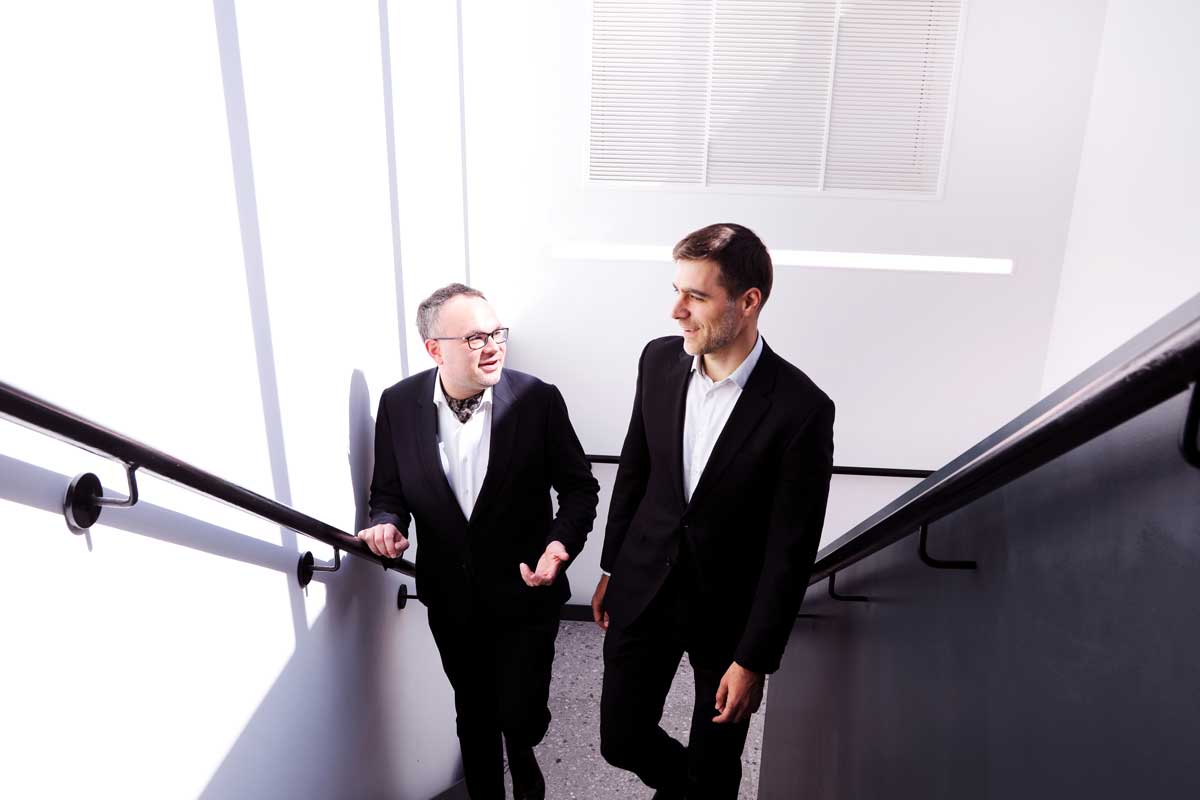

What does an average day look like for the two of you?
D: There’s no such thing (laughs). I’m generally in meetings that can be in Prague or based abroad. I spend a lot of time working with politicians, sponsors, business partners and the media. My biggest priority is to keep the image of the orchestra fresh and innovative.
R: We basically do the same thing, but the focus is different. David has to keep all the connections flowing to make sure that the orchestra has enough funding – it’s a difficult job but he’s brilliant at it. My focus is more on the orchestra itself, managing the schedule, looking at the season programming and trying to secure enough tours, recordings and other projects.
Music is seen as something that crosses borders. With the Czech Philharmonic there’s a big focus on Nationalism, is this deliberate and where do you strike a balance?
R: The Czech Philharmonic has three missions. The first is to bring the best of classical music to Prague. The Czech nation has the right to hear the best soloists, conductors and classical programmes. Other orchestras in the country don’t have that power and it’s important for us to recognise that we do. For example, this year we had Sir Simon Rattle perform with us and it was a great highlight.
The second mission is to educate. We see the Czech Philharmonic as an education institute of national importance. We’re currently full to capacity with our education work and the building is bursting. So we’ve installed a TV studio in the building and our aim is to broadcast our education programmes throughout the country.
Our third role is to represent Czech culture abroad and that’s why we do so much touring. It’s our role to tell the world that this little country is noble, educated and civilized.
D: The orchestra is 99% Czech and because of our great education system and culture, that gives us a very special sound. There are many great orchestras in the world, but many of them are quite similar to each other because they are globalised. The musicians of the Czech Philharmonic all perform in a particular way, they’ve had a similar history and listened to the same folk songs when they were children. It’s hard to describe, but when international conductors come to work with the orchestra, they make a point of telling us that the sound we have is very unique and that we should protect it.
The orchestra is 99% Czech and because of our great education system and culture, that gives us a very special sound."

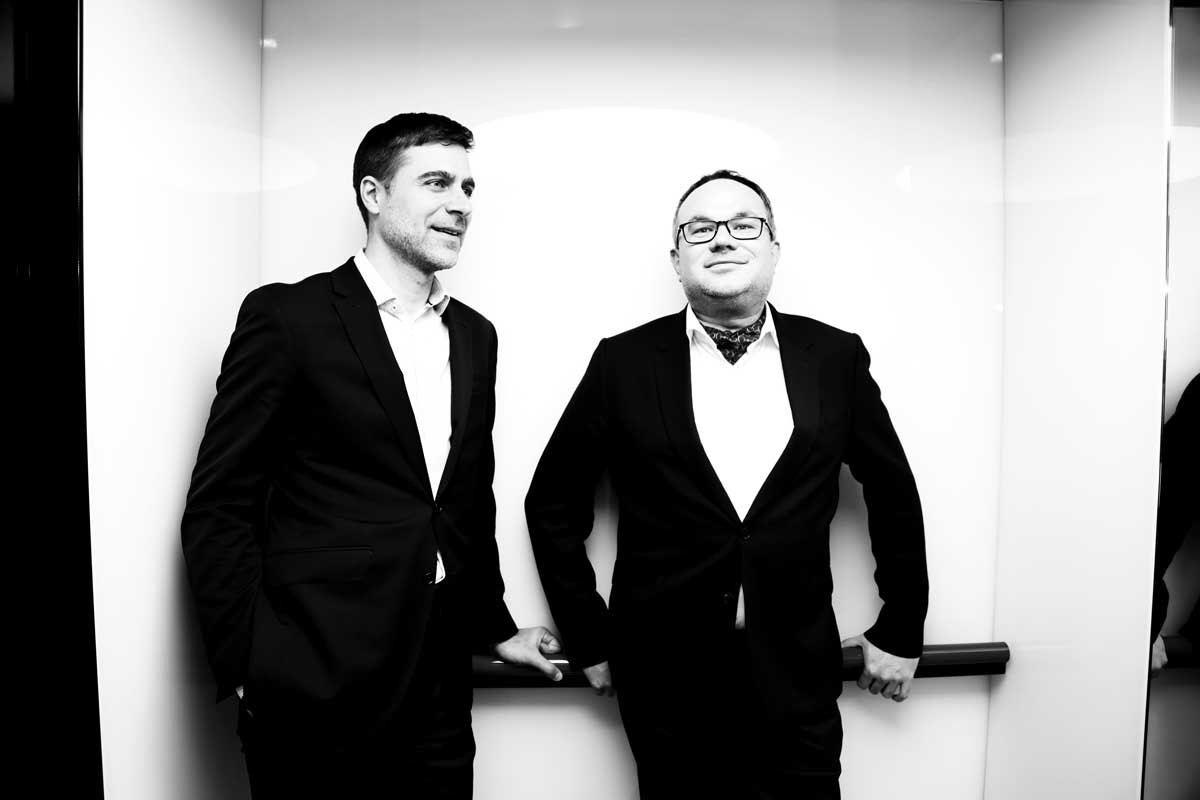

When I go to a concert, I don’t expect perfection – I want a real experience. That is something that you can never get from a recording no matter how well it is done."

After the passing of Jiří Bělohlávek, why was Semyon Bychkov the new chosen leader of the orchestra?
R: It was not us who chose Semyon. It was the orchestra, which is rare. When our beloved Jiří Bělohlávek passed away, we spoke to members of the orchestra and they unanimously voted for Semyon. When he then agreed to join us, we were thrilled. He immediately began to work intensely with the orchestra and we knew he was the perfect choice. The chemistry between them is very special and they have evolved so much with him.
Your latest release ‘The Tchaikovsky Project’ boxeset includes some of the world’s most famous classical piece – what makes this recording different to the many others?
D: Everything. We’re very lucky to have an amazing list of Czech composers to perform regularly and we have been bringing this music to the stage for decades. However, this can also be a trap, because it can mean that we’re not embracing the rest of the world’s composers as much as we should. We felt that with this project, it was time to really demonstrate that we could do this.
R: The obvious choice for us was Tchaikovsky: he was a Slavic composer, spent time in Prague and knew Dvořák. Tchaikovsky was also the first eastern composer to write in the western styles of Beethoven and Mozart. For his music you need Slavic richness and warmth for the melodies, while also having a Germanic organisation to it. Prague has one foot in the eastern culture and the other foot in the west. We were the perfect choice to record this music.
What do you say to audiences who feel that recordings can never come close to the experience of a live performance?
D: They don’t! And that’s because they’re two very different things. When I go to a concert, I don’t expect perfection – I want a real experience. That is something that you can never get from a recording no matter how well it is done. But in a recording, you can risk much more, you can go to the very edge and achieve an incredible quality of sound.
R: Musicians need to record because they spend so much time trying to achieve perfection, standing in a room for hours practicing one bar. In a concert, perfection is impossible – we‘re not machines and things go wrong. In a recording you can achieve much more musical content that is just not possible on stage. They are two completely different things, achieving different goals.
To find out more about the Czech Philharmonic see: www.ceskafilharmonie.cz
All images displayed in this article are subject to copyright.
Share this article


